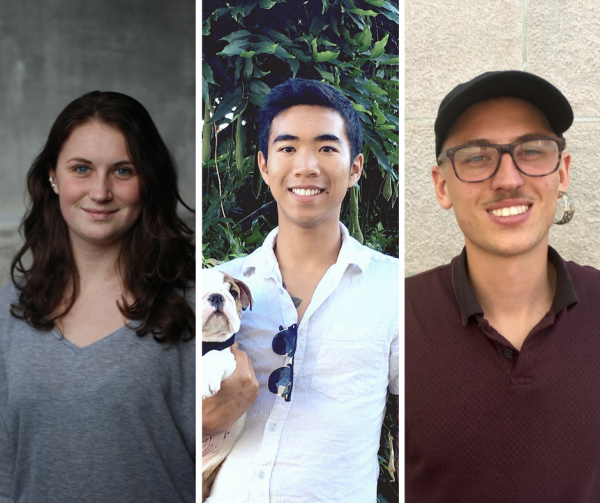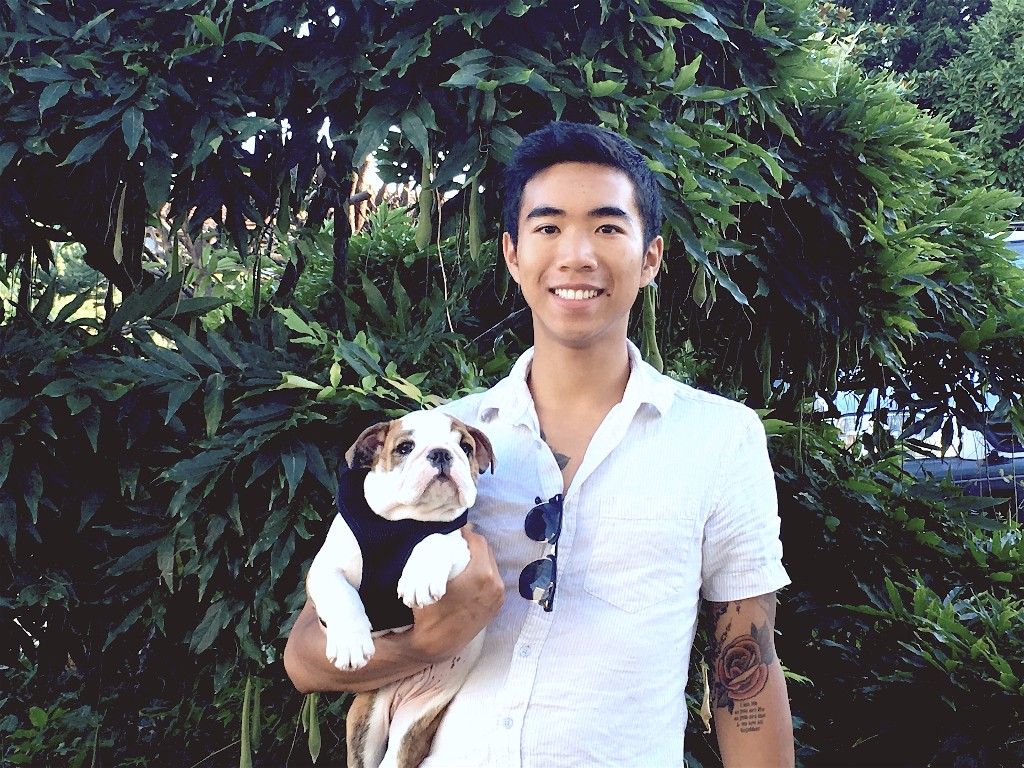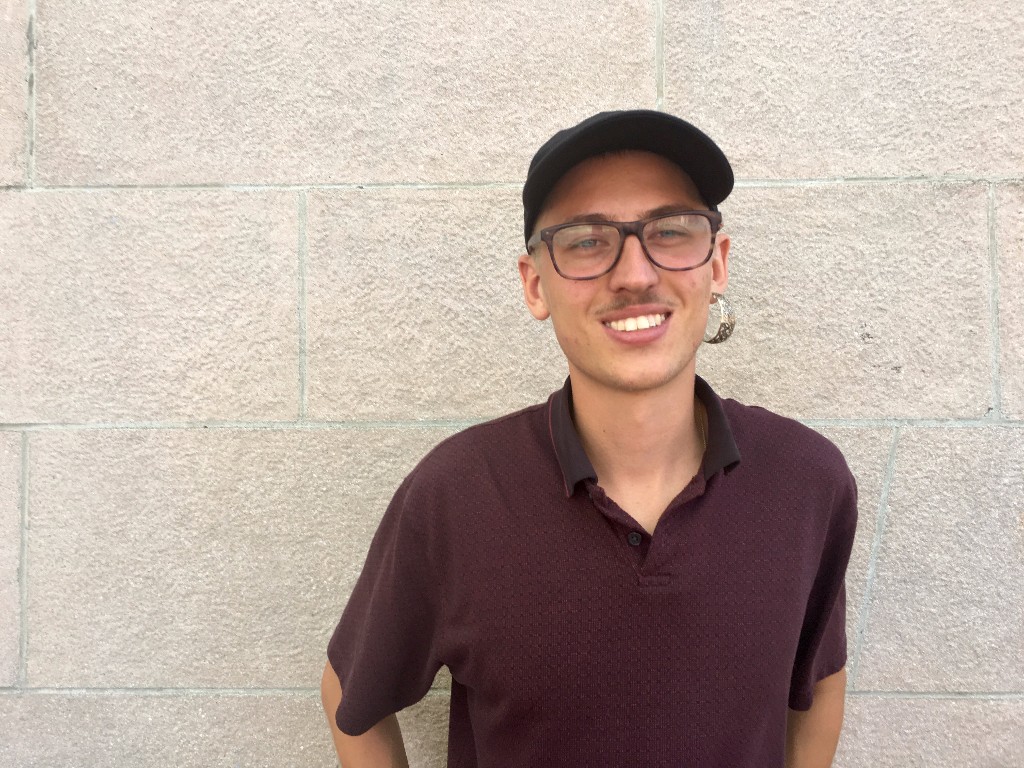
Nearly 300 students worked on CSF projects or with the CSF Office last academic year! In the interest of highlighting these committed students, each month we will be interviewing select CSF project leads, volunteers, alumni, staff and committee members.
Sunni Wissmer, Alumni

UW Graduation Year: 2015
Major: Community, Environment, and Planning
Minor: Astronomy
Hometown: Steilacoom, WA
Favorite Outdoor Activity: Sailing
What position did you hold when you worked with the CSF?
"Resident trouble-maker, but formally I had a number of positions. For a year I was the Student-Staff-Faculty liaison. I would go around trying to get people to start projects, which I had been doing before anyway. I also worked on the Husky Sustainable Storms and UW Solar projects; two of the largest infrastructure projects the CSF has funded. Lastly, I was on the CSF committee for a year.”
What takeaways do you have from working with the CSF?
"It taught me to just ask for what you really want and be genuine. Be professional, but be real. Just go out there and make friends. Climate change is too big of an enemy for us to not be on the same side. So, the more you can turn enemies into friends the better. It’s about showing people that you are not trying to make them look bad or show them up. You are not trying to challenge their authority. You are throwing a party and they are invited. Make it fun.”
What is your current job?
“I am the Global Network Coordinator for the International Living Future Institute at the Bullitt Center. I work with the Living Future Network, which includes 690 professionals in 43 countries. Lots of different time zones. Lots of different ideologies of life. But we all have one thing in common: we want to fight climate change. And we feel that the best way to do that is to implement Living Building projects.
The Living Building Challenge is the most stringent green building standard in the world. The Bullitt Center is a Living Building and there are only 11 certified Living Buildings in the entire world. There are about 346 registered projects pursuing the certification. The program recognizes buildings that collect all their own water, all their own energy, and are made with healthy building materials. They can’t use any lead, PVC or asbestos. All those things are highly toxic and are known to cause cancer, and yet we build with them every day.
The Living Building Challenge is based on the idea of biomimicry. We as biological organisms have evolved as part of a system that is 3.8 billion years old. This system that we evolved within has certain chemicals, processes, and substances that our species has learnt to deal with. A huge part of why we are starting to see things like higher rates of autism, cancer, or multiple sclerosis is that we are now chemically creating materials, substances, and processes that we’ve never been exposed to before. We are forcing our bodies to do things they haven’t evolved to do like sit in an office chair all day in the dark. So why not design in a way that’s respectful of our biological need to fit in with our local ecology? That’s the whole idea behind living buildings."
To learn more about the International Living Future Institute or the Living Building Challenge, please visit living-future.org
Jordan Hoy, Project Lead

UW Graduation Year: 2017
Major: B.A Environmental Studies
Hometown: Seattle, WA
Favorite UW Class: ENVIR 240, The Urban Farm
CSF Project: Green Square: UW Tower Urban Garden Demonstration
What inspired you to get involved with CSF?
"This project is a good representation of my past 2 years at UW studying environmental studies and focusing on the social science aspect of the environmental movement. It's exciting that we can incorporate greenery into our environment, into our daily lives and the countless benefits it can bring. Our project team is trying to make urban agriculture really accessible. We hope people will see different permaculture techniques in our garden and think, “Wow, I can apply that to my backyard, or my little porch that I have, or the top of my boat, for example. I currently live on a boat, which has no yard whatsoever, so I would like to have some food production. I have a couple blueberry plants, but I am just getting started."
What's your takeaway from applying for a CSF grant?
"During the grant writing phase, it was all about the context that we presented. Key in our application was the context of the UW and the sustainable vision this institution wants to present to the outside world. The Green Square project is unique because the UW Tower is the face of the UW. Visitors come through our project space daily, and with the new light rail station, it will experience even more exposure. So, it's very important for that little brick courtyard to express the sustainable values of the UW. We also addressed the larger context of our food system and unsustainable practices. The most effective way to learn about this is to look at our personal lifestyle choices. So we hope that people can take little techniques or aspects from our garden demonstration into their daily lives."
What advice would you give to other students interested in the CSF?
"If you see something that really needs to be done, go for it! The university is such a great platform for people who want to make a difference and the CSF is a great program to fund those activities. There are so many different exciting things that are going on because of CSF."
Gunnar Colleen, Project Lead

UW Graduation Year: 2017
Major: Public Health
Hometowns: Seattle, WA and Vienna, Austria
Favorite UW Class: CHID 480: Life in Excess: Waste, Want and the Politics of Surplus
CSF Project: ASUW Student Food Cooperative Bulk Buying Storefront
What inspired you to get involved with the CSF?
"At the co-op, one of our main goals is to move towards a sustainable food future. This is tied to many environmental and labor issues. We see the bulk-buying project as a somewhat small but completely concrete way to try and change the local food system in the university community. We are trying to connect students with sustainable, healthy food in a way that is affordable and accessible."
What is a challenge or reward you have experienced in implementing your project?
"There are both issues and rewards tied to moving beyond our small group and trying to be a larger entity. Right now we mostly do educational work, cooking workshops, and different things like that. Membership has been flexible, meaning students can come whenever they’re interested and help out when they can. Moving towards a concrete location with regular operating hours, we are going to have to completely change the way we organize ourselves. It will change our community."
In your own words, what is a cooperative?
"A democratic model for organizing an entity. Unlike most private businesses, you aren’t having someone at the top of the hierarchy making all of the decisions. In a cooperative, everyone is making the decisions together based on what each member can and wants to do. It’s a true community."
What advice would you give to other students interested in the CSF?
"If you have an idea, and you think you can do it, go for it. I was kind of cynical when one of our members went through the grant process because at that point we hadn’t made much progress with our plans. But everything worked out and we are moving forward with it. So biggest advice: go for it. Things only happen when someone does something to make them happen."